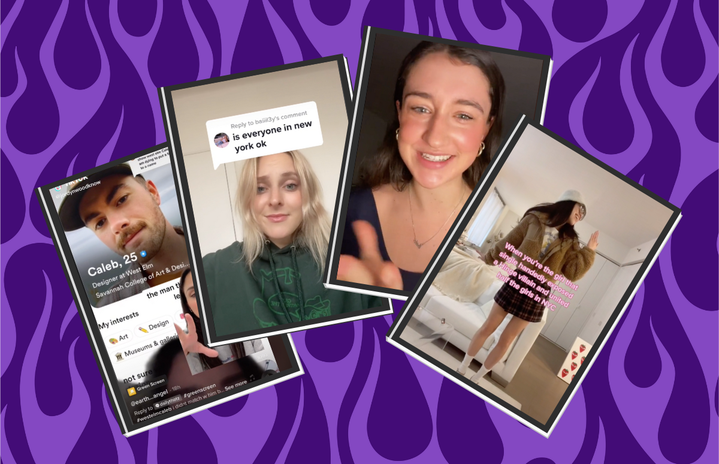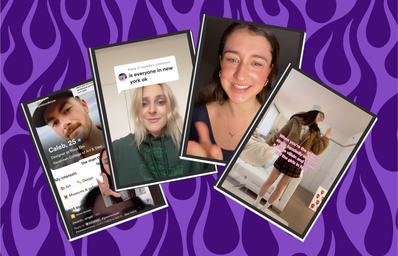The cult of TikTok has unearthed a new target, and his name strikes fear into the hearts of (apparently most) women in New York City. Thousands of women have gathered their pitchforks and turned to TikTok to rage against a now-notorious public enemy number one, guilty of perhaps one too many instances of ghosting: “West Elm Caleb.”
What began with TikTok user Mimi Shou (@meemshou) relaying her recent ghosting experience quickly spiraled into a cultural phenomenon. Caleb appeared to be a tall, dreamy furniture designer (guess for who), and many women were utterly devastated after finding out about his disingenuous behavior. According to users, Caleb is guilty of matching with multiple women on dating apps, “love-bombing” them, then subsequently ghosting them. Gross. Although this behavior is a seemingly routine occurrence of today’s situationships and instantly gratifying dating apps, the case of West Elm Caleb struck a chord with women in New York City. Many of his “matches” testified in Shou’s video’s comment section, and other women made their own videos, creating a sense of solidarity for ghosted women—and simultaneously blowing up Caleb’s name.
Soon hundreds of women, ex-flings of Caleb or not, hopped on the hashtag bandwagon that now has more than 55 million views, armed with screenshots, personal anecdotes—and Caleb’s personal information. People posted Caleb’s social media, dating app profiles, and even face “reveals” that displayed him to millions. The collective burgeoning hatred for West Elm Caleb initially provided a way for women to express solidarity and heal from heartbreak together, but it soon transformed into Caleb becoming a punching bag for every other woman with a similar story (and we’re talking about men here, so let’s be honest—there are a lot!)
Although his atrocious attempts at dating are prison-worthy offenses (the same Spotify playlist with different names for different women—come on!), instead of just a horror story shared with close friends, Caleb’s tale became infamous lore among women everywhere. The type of public bashing he has endured is a byproduct of the fast-acting, unforgiving cancel culture of TikTok.
But is Caleb truly worthy of this online outing and public vitriol? While there’s no excuse for crude, thoughtless, and even reprehensible dating behavior, does a mediocre man’s actions deserve this much attention to begin with?
Twitter joined the TikTok analysis of the West End Caleb phenomenon, and there was a little pushback. Users wondered exactly what an online dating match truly owed women he knew for less than a day. Others took offensive to the term “love-bombing” being thrown around in regard to Caleb’s interactions, pointing out that actual “love-bombing” is regarded as part of an abusive relationship’s cycle as the abuser tries to mollify their victim.
One TikTok user had an interesting take on ghosting, saying she preferred it in such a meaningless situationship rather than enduring an awkward, painful exit interview.
Did dedication to sisterhood spiral out of control in the West End Caleb saga? Perhaps this average Joe didn’t deserve full-blown cancel culture—or even a split second of our attention.
The women who experienced his shitty behavior firsthand have every right to call him out and vent to their friends, but doxing him may cross the line.
Is there a moral to the story of West Elm Caleb? Maybe it can serve as a cautionary tale to all the guys out there who routinely treat women poorly. This is not a good time in history to act badly and expect no repercussions. And to all the girls: You deserve better. Ladies, he doesn’t need a second more of our time. (But thanks for the laughs, Caleb.)


